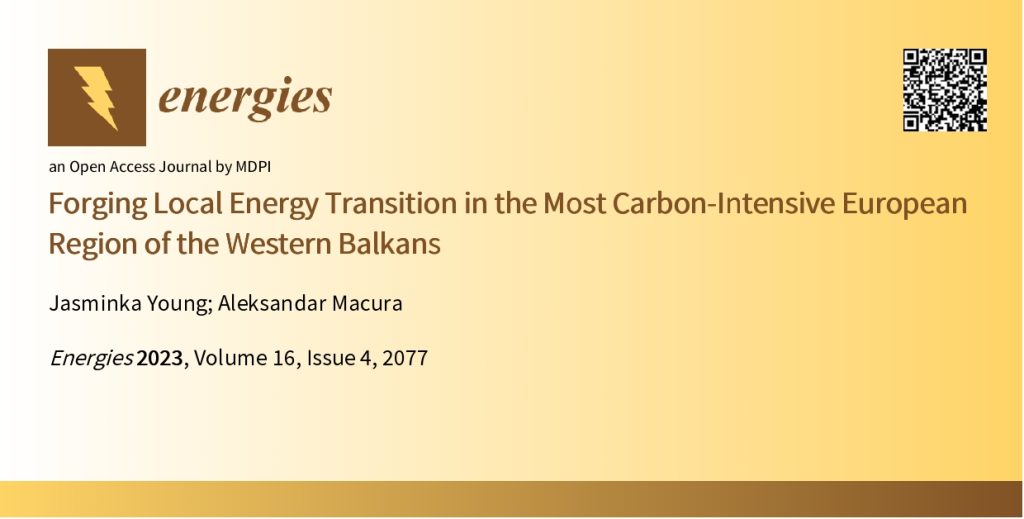
Authors: Jasminka Young, Aleksandar Macura
To close an existing literature gap, we explore the conditions critical for the enactment of local energy transition and the shift to decarbonized renewable heating systems in the public sector of the most carbon-intensive European region of the Western Balkans. We select and then analyze the municipality of Priboj, which stands out among 150 municipalities in Serbia due to its effective promotion of local energy transition. The analysis provides a rich empirical illustration of a specific path that enables the local level to embark on a tailor-made energy transformation in an underdeveloped and path-dependent national policy framework. By linking a multi-level perspective of sustainability transitions to accounts of path dependency, we advance the understanding of the critical determinants and frameworks of local energy transition. Our analysis is enhanced with an investigation of the role of key actors and governance modes. A shared understanding of innovative solutions and existing local heating regime problems, and a shared vision of economically and environmentally viable opportunities based on available and unutilized local biomass, encouraged the local leaders to embark on a long and novel journey to decarbonize the local heating system. These observed factors coalesced with local political stability anchored in both the local- and national-level contexts. The effective coordination and cooperation across national- and local-level decision makers, financial institutions, and utilities was facilitated by a specific geographical and political context out of the reach of powerful gas network advocates. With these factors present, the synchronized entrepreneurial multi-level efforts served as the vehicles to develop and implement a shared vision of energy transition that became a learning platform for other regional actors.
Read the full article: Jasminka Young; Aleksandar Macura; Forging Local Energy Transition in the Most Carbon-Intensive European Region of the Western Balkans; Energies 2023, Volume 16, Issue 4, 2077
